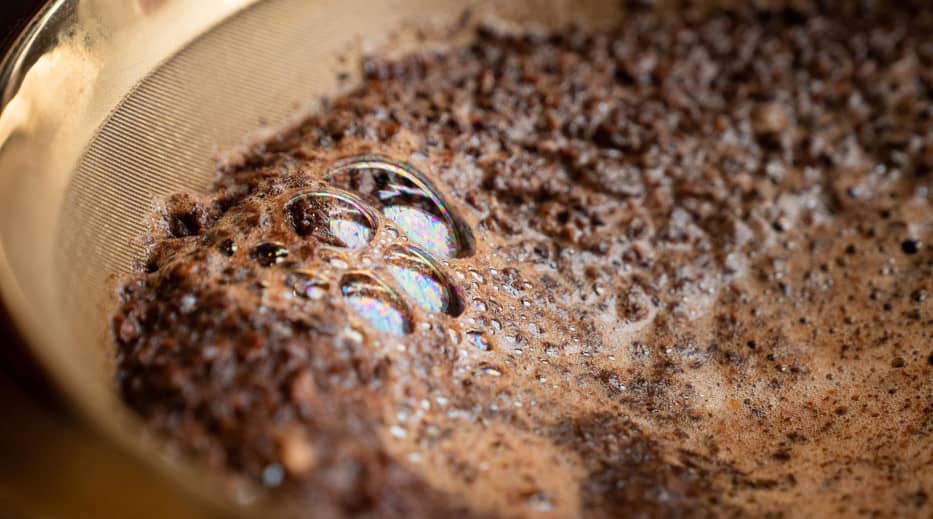Putting Coffee Grounds in the Sink: Yes or No? - Insights What's Needed
Putting Coffee Grounds in the Sink: Yes or No? - Insights What's Needed
Blog Article
We've encountered this post about What are the consequences of putting coffee grounds listed below on the internet and decided it made perfect sense to talk about it with you on my blog.

If you're an avid coffee enthusiast, you may be questioning the most effective way to deal with your coffee grounds. While it may appear hassle-free to clean them down the sink, this practice can lead to several issues for both your plumbing and the setting. In this short article, we'll discover whether it's safe to put coffee premises down the sink and discuss alternate disposal approaches to consider.
Dangers of Putting Coffee Grounds Down the Sink
Plumbing Issues
Among the key concerns with getting rid of coffee premises down the sink is the threat of obstructing your pipelines. Coffee premises do not dissolve in water and can accumulate in time, forming a thick sludge that can obstruct drains pipes and result in expensive plumbing fixings.
Ecological Impact
Beyond the potential damage to your plumbing, putting coffee premises down the sink can also damage the setting. When cleaned into the sewer system, coffee premises can contribute to blockages in drain lines and treatment facilities. In addition, the high focus of organic matter in coffee premises can deplete oxygen levels in rivers, negatively influencing water life.
Alternatives to Disposing of Coffee Grounds
Composting
One environmentally friendly alternative for disposing of coffee premises is to compost them. Coffee premises are rich in nitrogen, making them a superb addition to compost heap or containers. As they decompose, they include nutrients to the dirt, improving its fertility and structure.
Garbage Disposal
If you do not have a composting setup, one more choice is to merely toss your coffee grounds in the trash. Be sure to seal them in a compostable bag or container to avoid smells and leak. While this technique does not use the very same ecological advantages as composting, it's a secure and hassle-free means to take care of coffee premises.
Tips for Proper Disposal
Make Use Of a Sink Strainer
To stop coffee grounds from entering your sink's drain in the first place, take into consideration making use of a sink filter. These economical devices catch solid particles, consisting of coffee grounds, stopping them from triggering obstructions.
Normal Maintenance
No matter just how you choose to take care of your coffee premises, it's necessary to keep your plumbing routinely. Set up routine drainpipe cleanings to get rid of any kind of buildup and ensure that your pipes continue to be clear and free-flowing.
Conclusion
While it might be alluring to wash coffee grounds down the sink for comfort, doing so can have significant consequences for your plumbing and the environment. Instead, take into consideration composting your coffee premises or getting rid of them in the trash. By embracing accountable disposal methods, you can appreciate your coffee guilt-free while lessening your eco-friendly impact.
Coffee Grounds Down The Drain: Are They OK?
Can Coffee Grounds Go Down the Sink?
You may be thinking, “But I pour them down the sink drain every day and I’ve never had a clogged drain!” You see, coffee grounds come from coffee beans, which are virtually rock hard by the time they’re ground and brewed. You certainly wouldn’t want to grind up the pit from a peach, apricot, or nectarine that is about just as hard because they wouldn’t break down like other foods, and it’s the same with coffee beans!
If you usually grind coffee beans in the garbage disposal because it seems the cleanest and convenient, we don’t fault you for that. And anyone who has ever had to clean up the trash with spilled coffee grounds after a dog got into it would understand the rationale. Unfortunately, coffee grounds do not break down in water, so instead of grinding up and washing away as normal foods do in a garbage disposal, they clump together and as time goes by, the grounds can form a clump and pack the drain until it develops a clog.
What to Do With Coffee Grounds
So, what do you do with coffee grounds if you can't put them down the drain? You could of course just throw them in the garbage, but we encourage you to give these practical uses for them a try!
Since coffee grounds contain key minerals for plant growth, you can use them to fertilize your garden. Coffee grounds not only fertilize gardens because they are mineral-rich, but they are also great at absorbing contaminants in the soil, particularly heavy metals. Coffee grounds are said to attract worms, which help gardens flourish. You can use coffee grounds as fertilizer by sprinkling them around your plants. You can compost your coffee grounds and use them at a later time. Coffee grounds are great insect repellents when you place them in bowls or sprinkle them around the areas you want to repel insects. To remove fleas from your dog or cat, simply shampoo your pet then rub coffee grounds throughout their fur. Rinse them off and dry as usual. Like baking soda, used coffee grounds can eliminate odors. You can place them in a bowl in the fridge and let them do the work! Mix coffee grounds with coconut oil for a wonderful face or body scrub, or to reduce the appearance of cellulite. https://www.wintershomeservices.com/blog/2019/august/coffee-grounds-down-the-drain-are-they-ok-/

As an avid person who reads about What are the consequences of putting coffee grounds, I figured sharing that section was beneficial. Sharing is good. One never knows, you may very well be doing someone a favor. We thank you for reading our article about What are the consequences of putting coffee grounds.
Click Here Report this page